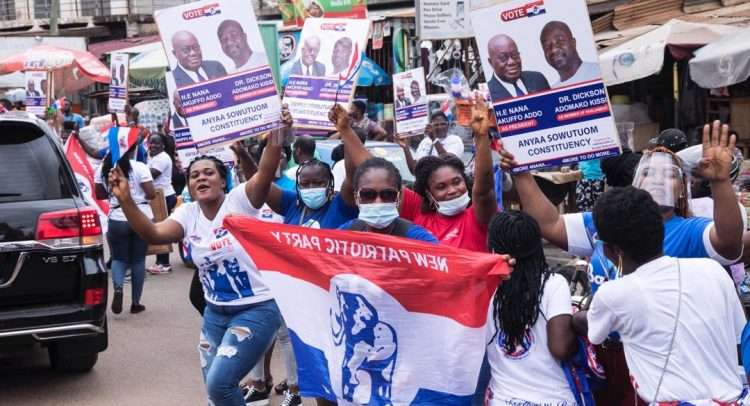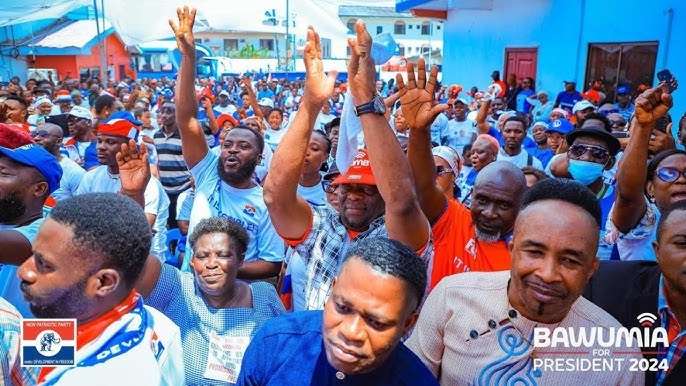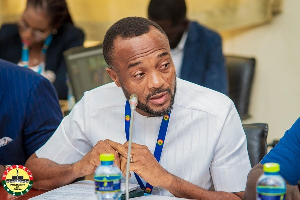In a political climate where internal party dynamics often shape national discourse, the NPP constitution is once again under scrutiny.
The New Patriotic Party’s recent announcement to amend its constitution has sparked a mixture of optimism and caution from political observers, most notably Professor Seidu Mahama Alidu, Head of the Political Science Department at the University of Ghana.
Professor Alidu, widely respected for his insights on party politics, linked the party’s move to overwhelming sentiments gathered from various post-election studies.
According to him, these studies revealed a consistent pattern of complaints and frustrations that trace back to either poor enforcement or outdated provisions within the NPP constitution.
“So, for example, if you look at most of the constituencies that we went to, the reason was the backlash and the clashes from the primaries, especially at the parliamentary level, that transitioned into the main elections and election campaign.”
Professor Seidu Mahama Alidu
He pointed out that in many constituencies, the roots of discontent were planted during the selection process of parliamentary candidates.
At the heart of the problem, he noted, was a failure to enforce rules clearly stated in the party’s constitution. “Constituency executives were picking sides in the contest when the NPP constitution clearly forbade them from doing that.”
To Prof. Alidu, this incident wasn’t merely a procedural oversight—it represented a deeper violation of the party’s internal democratic principles.

He viewed it as a clear case of favoritism that undermined transparency and fairness within the party’s internal structures. The consequences, he noted, were far-reaching.
This perceived bias didn’t just provoke isolated discontent; it created simmering divisions that carried over into the general election period.
As tensions mounted and trust eroded, the party’s sense of unity weakened, leaving its rank and file demoralized and its campaign machinery less effective at a time when cohesion was most critical.
Calls For Caution And Clarity in The NPP
However, not all issues stemmed from enforcement. Some, according to Prof. Seidu Alidu, demanded actual amendments to the NPP constitution.
These involved adapting to new political realities, including changes in party culture and the evolving needs of constituents. “It has to do with the party seeing how they can amend that aspect of the constitution to take care of the needs of the people.”

For instance, certain previously prohibited actions may now require reconsideration, while outdated allowances may need to be scrapped altogether.
However, Professor Alidu was quick to warn against a hasty approach. While he agrees with the idea of reform, he cautioned that even the best intentions must be carefully executed.
Poor implementation, he argued, could lead to internal instability and deepen factionalism within the party.
He believes that the road to reform must be driven by thorough analysis and collective understanding.
This, in his view, makes the work of the newly formed nine-member committee all the more critical.
The committee, following the earlier work by Professor Mike Oquaye’s constitutional review body, is now expected to review, refine, and recommend the next steps.
Accordingly, Prof. Alidu insisted that the review process must strike a delicate balance—acknowledging the views of grassroots members while upholding the foundational ethos of the party.

“The nine-member committee… must actually sit down and see what is supposed to be done, especially those that have constitutional implications.”
Professor Seidu Mahama Alidu
He underscored that such amendments should not be reactionary or merely convenient. Instead, they must reflect a synthesis of the aspirations of the rank and file, the expert guidance of constitutional committees, and the long-term strategic goals of the party.
According to him, only then can the NPP constitution evolve in a way that fortifies party unity and enhances democratic practice.
This moment presents both an opportunity and a test for the NPP. Will the party use this constitutional overhaul as a chance to mend its internal cracks and rejuvenate its image, or will it fumble through the reform process, alienating its base even further?
It is a question not just of drafting new clauses, but of demonstrating political maturity. Parties grow not just by winning elections but by learning from their internal failings and correcting course.
The NPP constitution can be a tool for growth, but only if wielded with insight, humility, and respect for democratic values.
READ ALSO: GSE Q1 2025: Value Surges as Investors Pivot to High-Priced Equities





















